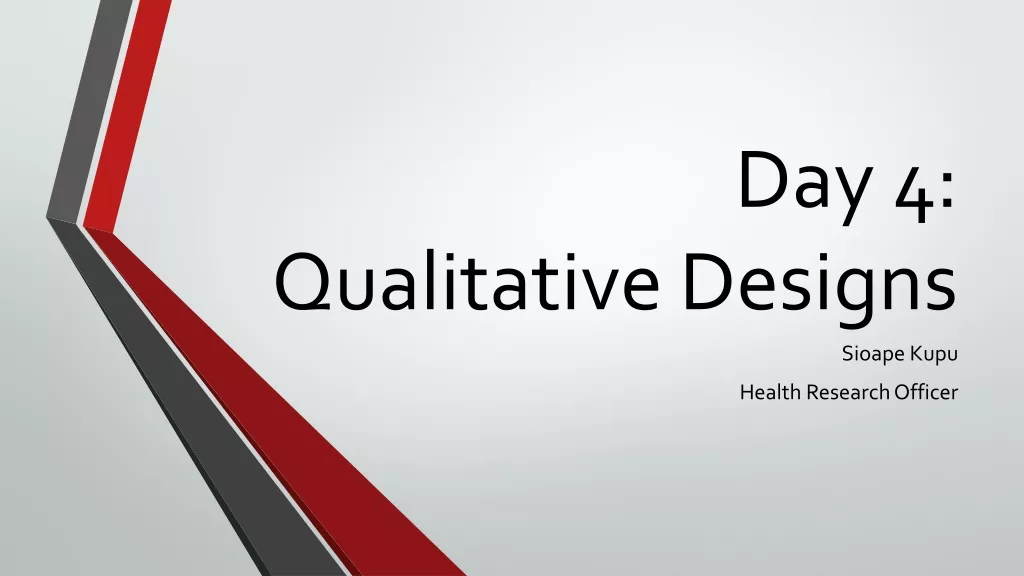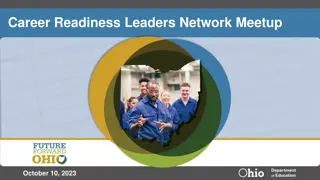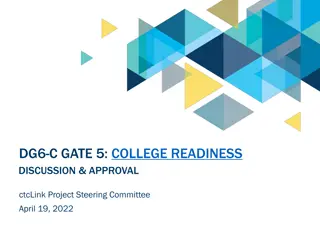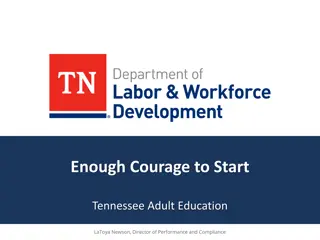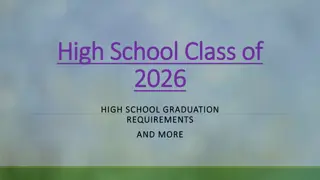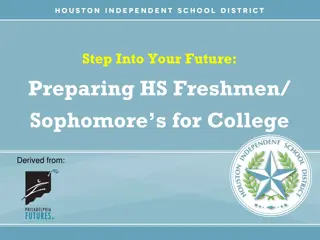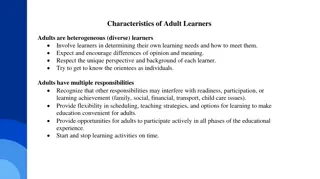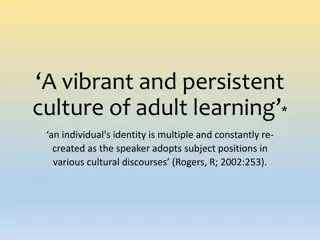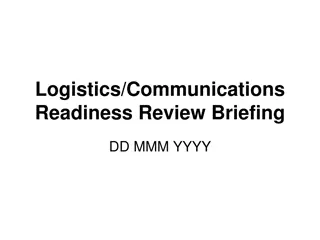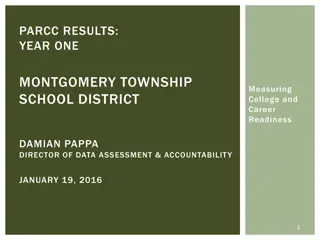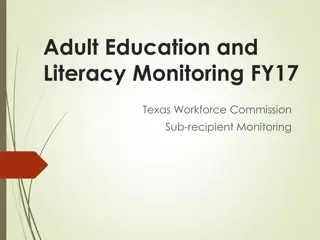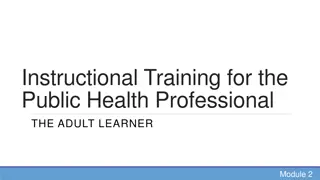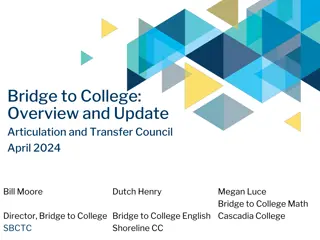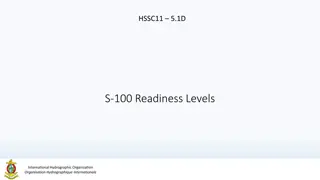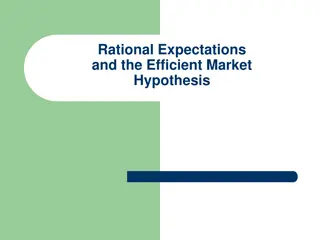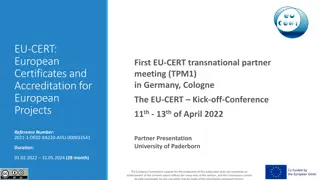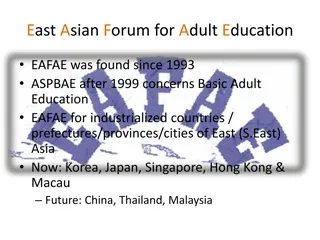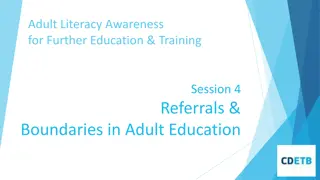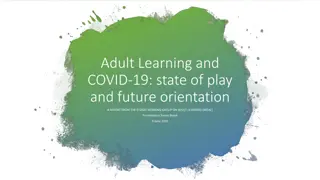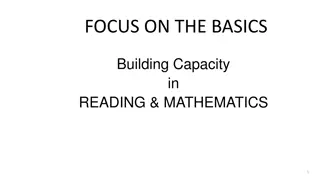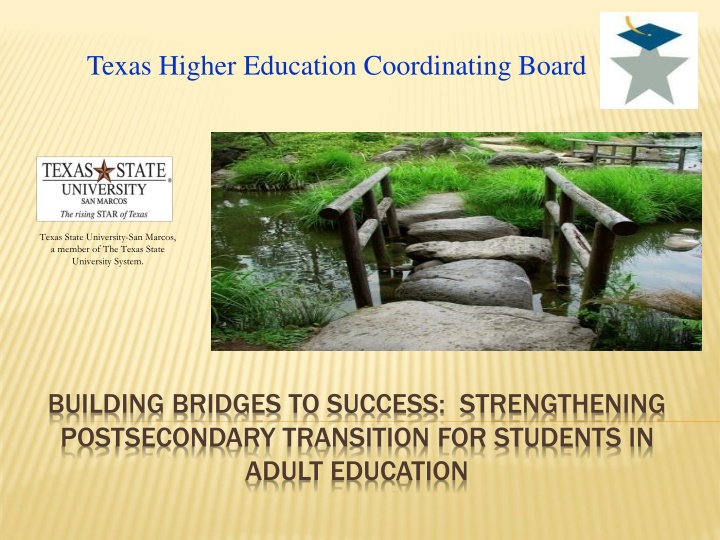
Enhancing Postsecondary Transition for Adult Education Students in Texas
Explore the journey of Texas Adult Education Content Standards from development to implementation, focusing on strengthening postsecondary transition for students. Learn about the phases, benchmarks, and alignment to ESL learner needs. Dive into the sessions, standards adoption, and field test insights.
Download Presentation

Please find below an Image/Link to download the presentation.
The content on the website is provided AS IS for your information and personal use only. It may not be sold, licensed, or shared on other websites without obtaining consent from the author. If you encounter any issues during the download, it is possible that the publisher has removed the file from their server.
You are allowed to download the files provided on this website for personal or commercial use, subject to the condition that they are used lawfully. All files are the property of their respective owners.
The content on the website is provided AS IS for your information and personal use only. It may not be sold, licensed, or shared on other websites without obtaining consent from the author.
E N D
Presentation Transcript
Texas Higher Education Coordinating Board Texas State University-San Marcos, a member of The Texas State University System. BUILDING BRIDGES TO SUCCESS: STRENGTHENING POSTSECONDARY TRANSITION FOR STUDENTS IN ADULT EDUCATION
SESSION OVERVIEW Texas Adult Education Content Standards (TAECS) Texas College & Career Readiness Standards (CCRS) General Differences Reading Content Standards Group Activity: Writing & Math Group Share Wrap Up
Texas Adult Education Texas Adult Education Content Standards Content Standards
TEXAS ADULT EDUCATION CONTENT STANDARDS Phase I: January Phase I: January August, 2004 Conducted a survey of adult education Conducted a survey of adult education teachers and administrators teachers and administrators Presented the findings to a taskforce of adult Presented the findings to a taskforce of adult education practitioners from education practitioners from across the state August, 2004 across the state Phase II: September, 2004 Phase II: September, 2004 June, 2005 Adopted standards. Adopted standards. Formed writing teams. Formed writing teams. June, 2005
TEXAS ADULT EDUCATION CONTENT STANDARDS Phase III: July, 2005 Phase III: July, 2005 - - June, 2006 Developed benchmarks Developed benchmarks Conducted controlled field test Conducted controlled field test Conducted external reviews Conducted external reviews Collected and analyzed data from the Collected and analyzed data from the controlled field test controlled field test Modified benchmarks Modified benchmarks Aligned reading/writing benchmarks to ESL Aligned reading/writing benchmarks to ESL learner needs learner needs June, 2006
TEXAS ADULT EDUCATION CONTENT STANDARDS Phase IV: July, 2006 Phase IV: July, 2006 - - June, 2007 Selected statewide field test participants. Selected statewide field test participants. Conducted standards specialist workshop. Conducted standards specialist workshop. Conducted professional development for field test participants. Conducted professional development for field test participants. Implemented statewide field test, analyzed data, and modified Implemented statewide field test, analyzed data, and modified benchmarks. benchmarks. Recruited additional standards specialists. Recruited additional standards specialists. Compiled learning activities. Compiled learning activities. Conducted refresher standards specialist training. Conducted refresher standards specialist training. Held statewide conference to unveil standards and Held statewide conference to unveil standards and benchmarks. benchmarks. Training/Implementation within programs: Fall, 2007 Training/Implementation within programs: Fall, 2007 June, 2007
TEXAS ADULT EDUCATION CONTENT STANDARDS ABE/ASE ABE/ASE ESL ESL Read with Understanding Speak so others can Understand Convey Ideas in Writing Listen Actively Use Math to Solve Problems and Communicate Read with Understanding Convey ideas in Writing These standards include components, benchmarks, strands and examples of activities that teachers may use.
TEXAS ADULT EDUCATION CONTENT STANDARDS Content Standards describe what learners Content Standards describe what learners should know and be able to do within a should know and be able to do within a specific content area. specific content area. Benchmarks reflect Benchmarks reflect exit reflect reflect entrance entrance abilities. exit abilities, NRS levels abilities, NRS levels abilities. Each level builds with Each level builds with increasing complexity and complexity and decreasing guidance guidance increasing degrees of degrees of decreasing levels of teacher levels of teacher
TEXAS COLLEGE AND CAREER TEXAS COLLEGE AND CAREER READINESS STANDARDS READINESS STANDARDS
TEXAS COLLEGE & CAREER READINESS STANDARDS 79th Texas Legislature, Third Called Special Session, House Bill 1, the 79th Texas Legislature, Third Called Special Session, House Bill 1, the Advancement of College Readiness in Curriculum. Texas Education Code Advancement of College Readiness in Curriculum. Texas Education Code Section 28.008 reads to increase the number of students who are college Section 28.008 reads to increase the number of students who are college and career ready when they graduate high school. (2006) and career ready when they graduate high school. (2006) These standards specify what students must know and be able to do to succeed These standards specify what students must know and be able to do to succeed in entry in entry- -level courses at postsecondary institutions in Texas. level courses at postsecondary institutions in Texas. The legislation required the Texas Education Agency (TEA) The legislation required the Texas Education Agency (TEA) and the Texas Higher Education Coordinating Board (THECB) and the Texas Higher Education Coordinating Board (THECB) to establish Vertical Teams (VTs) to develop College and Career Readiness to establish Vertical Teams (VTs) to develop College and Career Readiness Standards (CCRS) Standards (CCRS) in the areas of English/language arts, mathematics, in the areas of English/language arts, mathematics, science, and social studies. science, and social studies. Vertical Teams were composed of secondary and postsecondary faculty. Vertical Teams were composed of secondary and postsecondary faculty. Adopted by THECB in January, 2008 Adopted by THECB in January, 2008
TEXAS COLLEGE & CAREER READINESS STANDARDS Science Standards English/Language Arts Standards Social Studies Standards Cross- Disciplinary Standards Mathematics Standards
CROSS DISCIPLINARY STANDARDS CDS are divided into two main groups, namely the Key Cognitive skills and the Foundational skills. Each group of skills has a number of learned behaviors that teachers should seek to develop in students with the expectation that students demonstrate them upon completion. KEY COGNTIVE SKILLS KEY COGNTIVE SKILLS FOUNDATIONAL FOUNDATIONAL SKILLS SKILLS Reading across the curriculum Intellectual curiosity Writing across the curriculum Reasoning Research across the curriculum Problem solving Use of data Academic behaviors Technology Work habits Academic integrity
GENERAL DIFFERENCES GENERAL DIFFERENCES BETWEEN STANDARDS BETWEEN STANDARDS
Differences between Texas Adult Ed. Content Standards and Texas College and Career Readiness Standards Texas Adult Ed. Content Standards They differ in their focus: On basic academic survival skills Texas College and Career Readiness Standards On academic preparation They vary in the content detail that they provide: Contain minimal detailed content Contain detailed descriptions of the standards and the skills expected They define the quality of their graduates or products differently: Focus on GED completion Focus on college expectations The way they are organized differs : Are progressively arranged, moving the learner through a series of advancing skills through levels Present related but specific skills each of which must be mastered by students
THE READING THE READING STANDARDS STANDARDS
Differences between Texas Adult Ed. Content Standards and Texas College and Career Readiness Standards Texas College and Career Readiness Standards A. Locate explicit textual information and draw complex inferences, analyze, and evaluate the information within and across texts of varying lengths Texas Adult Education Content Standards Read with Understanding for ABE/ASE Determine the purpose of reading Select reading strategies appropriate for the purpose Monitor comprehension and adjust reading strategies Analyze information and reflect on underlying meaning Integrate new understanding with prior knowledge to address reading purpose 1. Use effective reading strategies to determine a written work s purpose and intended audience 1.6. Determine the appropriate purpose for reading a variety of materials 9. Identify and analyze the audience, purpose, and message of an informational or persuasive text Example: Reading information about college financial aid, reading newspaper conflicting editorials
Differences between Texas Adult Ed. Content Standards and Texas College and Career Readiness Standards Texas College and Career Readiness Standards Texas Adult Education Content Standards Read with Understanding for ABE/ASE Determine the purpose of reading Select reading strategies appropriate for the purpose Monitor comprehension and adjust reading strategies Analyze information and reflect on underlying meaning Integrate new understanding with prior knowledge to address reading purpose A. Locate explicit textual information and draw complex inferences, analyze, and evaluate the information within and across texts of varying lengths 3. Identify explicit and implicit textual information including main ideas and author s purpose 4.6. Identify both directly stated and implied information using variety of strategies to guide reading of long and varied texts and graphic sources (e.g., recognize bias and propaganda 4. Draw and support complex inferences from text to summarize, draw conclusions, and distinguish facts from simple assertions and opinions
Differences between Texas Adult Ed. Content Standards and Texas College and Career Readiness Standards Texas College and Career Readiness Standards Texas Adult Education Content Standards B. Understand new vocabulary and concepts and use them accurately in reading, speaking, and writing Read with Understanding for ABE/ASE Determine the purpose of reading Select reading strategies appropriate for the purpose Monitor comprehension and adjust reading strategies Analyze information and reflect on underlying meaning Integrate new understanding with prior knowledge to address reading purpose 1. Identify new words and concepts acquired through study of their relationships to other words and concepts 3.6. Demonstrate familiarity with specialized content vocabulary in complex documents and literature (e.g., science, social studies, and literature) 2. Apply knowledge of roots and affixes to new infer the meanings of new words 3. Use reference guides to confirm the meanings of new words or concepts
Differences between Texas Adult Ed. Content Standards and Texas College and Career Readiness Standards Texas College and Career Readiness Standards Texas Adult Education Content Standards A. Understand new vocabulary and concepts and use them accurately in reading, speaking, and writing Read with Understanding for ABE/ASE Determine the purpose of reading Select reading strategies appropriate for the purpose Monitor comprehension and adjust reading strategies Analyze information and reflect on underlying meaning Integrate new understanding with prior knowledge to address reading purpose A.11. Identify, analyze, and evaluate similarities and differences in how multiple texts present information, argue a position, or relate a theme 6.6. Gain underlying meaning of specialized text using a wide range of strategies such as recognizing unstated assumptions, applying relevant information to multiple scenarios, summarizing, synthesizing information from multiple texts, and interpreting figurative language C. Describe, analyze, and evaluate information within and across literary and other texts from a variety of cultures and historical periods C.1. Read a wide variety of texts from American, European, and world literatures C.2. Analyze themes, structures, and elements of myths, traditional narratives, and classical and contemporary literature
Differences between Texas Adult Ed. Content Standards and Texas College and Career Readiness Standards Texas College and Career Readiness Standards Texas Adult Education Content Standards C. Describe, analyze, and evaluate information within and across literary and other texts from a variety of cultures and historical periods C.3. Analyze works of literature for what they suggest about the historical period and cultural contexts in which they were written C.4. Analyze and compare the use of language in literary works from a variety of world cultures
Differences between Texas Adult Ed. Content Standards and Texas College and Career Readiness Standards Texas College and Career Readiness Standards Texas Adult Education Content Standards The Cross Disciplinary Standards Read with Understanding for ABE/ASE Determine the purpose of reading Select reading strategies appropriate for the purpose Monitor comprehension and adjust reading strategies Analyze information and reflect on underlying meaning Integrate new understanding with prior knowledge to address reading purpose A. Reading across the curriculum A.1. Use effective prereading strategies 5.6. Independently monitor and build comprehension strategies with a variety of texts A.4. Identify the key information and supporting details A.7. Adapt reading strategies according to structure of texts
Texas Adult Education Content Standards Texas College and Career Readiness Standards Texas Adult Education Content Standards Read with Understanding for ABE/ASE Determine the purpose of reading Select reading strategies appropriate for the purpose Monitor comprehension and adjust reading strategies Analyze information and reflect on underlying meaning Integrate new understanding with prior knowledge to address reading purpose 2.6. Recognize and interpret terms, signs, symbols and abbreviations independently. (terms, signs, symbols)
Differences between Texas Adult Ed. Content Standards and Texas College and Career Readiness Standards Texas College and Career Readiness Standards Texas Adult Education Content Standards The Cross Disciplinary Standards A. Reading across the curriculum A.2. use a variety of strategies to understand the meanings of new words A.5. analyze textual information critically A.6. annotate, summarize, paraphrase, and outline texts when appropriate A.7. Adapt reading strategies according to structure of texts A.8. connects reading to historical and current events and personal interest
Differences between Texas Adult Ed. Content Standards and Texas College and Career Readiness Standards Texas College & Career Readiness Standards The Cross Disciplinary Standards Texas Adult Education Content Standards D. Expected Academic Behaviors D.1. Self-monitor learning needs and seek assistance when needed D.2. Use study habits necessary to manage academic pursuits and requirements
GROUP ACTIVITY Let s look at the Math and Writing Standards
Transition Project Transition Project at at Texas State University Texas State University San Marcos In Collaboration with In Collaboration with Texas Higher Education Coordinating Board (THECB) Texas Higher Education Coordinating Board (THECB) San Marcos Dr. Emily Miller Payne Dr. Emily Miller Payne, Director of The Education Institute (TEI) Mary Helen Martinez Mary Helen Martinez, Transition Project Director Dr. Lewis Madhlangobe Dr. Lewis Madhlangobe, Transition Project Research Specialist Jonna Beck Jonna Beck, Graduate Student-Research Assistant Andrew Besa Andrew Besa, Graduate Student Research Assistant http://www.tei.education.txstate.edu/transitions
Texas Higher Education Coordinating Texas Higher Education Coordinating Board (THECB) Board (THECB) Dr. Tamara Clunis, Director Developmental and Adult Basic Education College Readiness Initiatives http://www.thecb.state.tx.us/ Texas College & Career Readiness Standards

